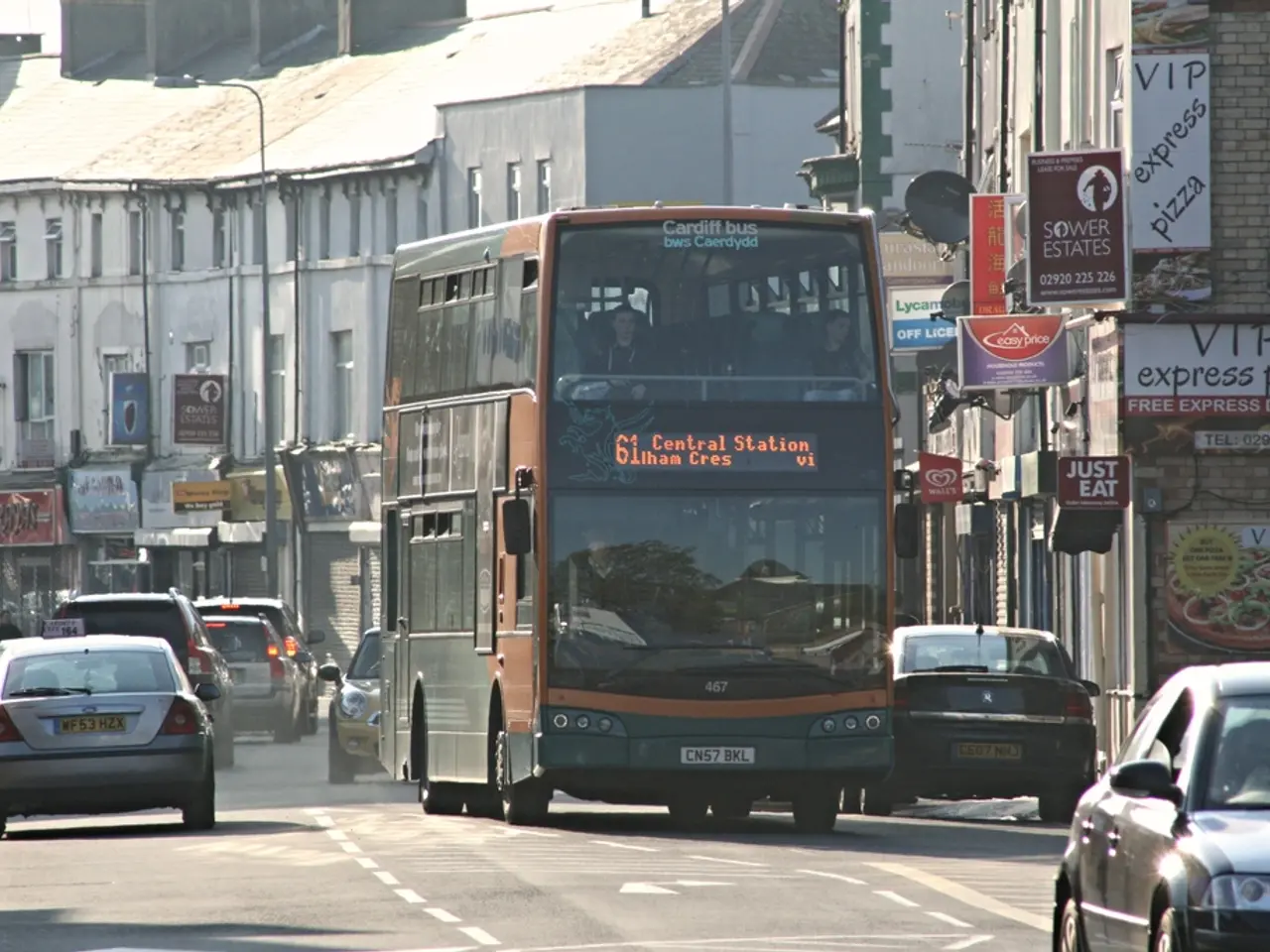Berlin Might Become Car-Free: Court Gives Green Light to Popular Initiative
Admissibility of people-led initiative "Berlin Car-Free" upheld - European Court Finds EU Commission Lacking in Fulfilling Treaty Obligations
Get ready to dust off those bikes and lace up those walking shoes! Berlin, the city famed for its history and vibrant nightlife, is shaking things up yet again. A recent ruling by the Berlin Constitutional Court has decided that the popular initiative to make the city center car-free is legally admissible. Yep, you heard that right! The court declared that there is no fundamental right to drive a car, paving the way for a public vote that could revolutionize Berlin's streets.
The Current State of Affairs
Thanks to the court's ruling, the ball is now in the court of the "Berlin Car-Free" Initiative. The next phase involves collecting signatures from at least seven percent of Berlin's eligible voters, approximately 170,000 people, within a three to four-month window to set off a city-wide referendum. If that seems like a hefty number, keep in mind that the initiative already has a solid grassroots backing, having amassed over 50,000 signatures back in 2021.
Once the required signatures are gathered and verified, Berliners will have their say through a public vote. To pass, the referendum needs a majority of votes, with at least one-quarter of all eligible voters participating.
Potential Changes Afoot
If successful, this ambitious initiative would essentially create a car-free zone in Berlin's city center, larger than Manhattan. The plan includes limiting private car trips to a maximum of 12 per year in the zone, implementing a 30km/h speed limit, and transforming parking spaces into pedestrian-friendly zones, such as parks, open-air cinemas, and children's playgrounds.
Such changes aim to significantly reduce traffic volumes, improve air quality, and enhance public health, all while supporting climate protection goals and elevating urban livability. Notice a resemblance to policies adopted by Paris and Bogotá? You're onto something!
Of course, the initiative isn't without its critics. Business organizations have expressed concerns about potential negative economic impacts on the region.
A Question of Berliner Spirit
Berliners have a knack for supporting progressive, sometimes unexpected, ballot measures, such as the 2021 housing referendum. Given this historical precedent, the car-free initiative might have a fighting chance if it makes it to a vote.
The initiative critiques the current Berlin Senate leadership for a lack of ambition in transport policy, positioning itself as a game-changing approach to urban mobility reform.
So, buckle up for an intriguing journey ahead—the fate of carbon emissions in Berlin's heart might be decided by the stroke of a pen. Whether you're a bike enthusiast, a supporter of cleaner cities, or a cautious observer, there's no denying this initiative will bring some dramatic changes, one way or another. Stay tuned!
- This car-free initiative in Berlin, supported by environmental science and climate-change activists, is now legally admissible following the decision of the Berlin Constitutional Court.
- The success of this initiative could lead to significant policy-and-legislation changes, reminiscent of emissions-reduction policies seen in cities like Paris and Bogotá, transforming the city's urban landscape and environmental health.
- As the initiative progresses, politics and general-news outlets will closely follow the developments, reporting on the possible economic impacts, urban livability enhancements, and the collective spirit of Berliners as they decide the future of their city's car-free policy.






